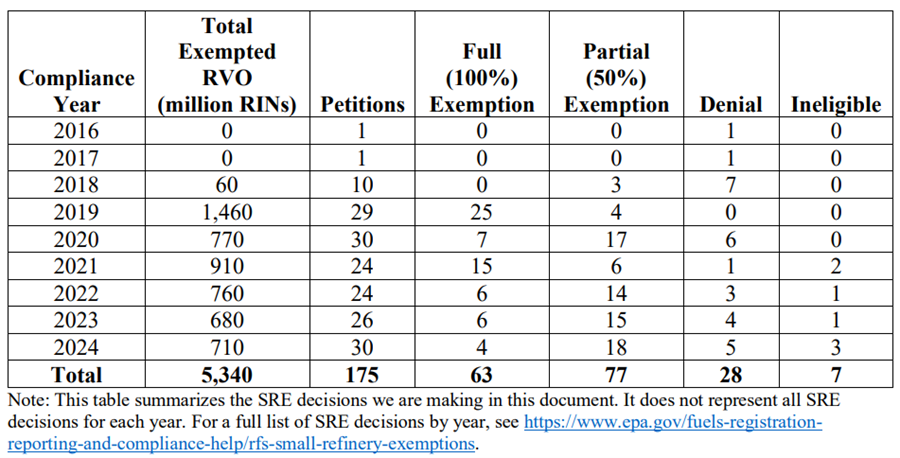Growth Energy Honors Top Biofuel Industry Leaders with 2026 TOBI Award Ceremony
Growth Energy honors member excellence across the biofuels sector each year through its prestigious TOBI Awards, recognizing outstanding leadership in political advocacy, technical innovation, corporate and association leadership, communications, and global market development. These awards spotlight the individuals and organizations driving progress and advancing the industry’s impact nationwide and around the globe. Growth Energy is proud to celebrate the 2026 TOBI Award winners at its Executive Leadership Conference, set against the striking desert landscape of Scottsdale, Arizona.
“This year’s winners embody the vision, ingenuity, and determination propelling the biofuels sector forward,” said Growth Energy CEO Emily Skor. “Their leadership is not only strengthening rural economies but also advancing America’s energy security and reinforcing the critical role of bioethanol in our nation’s energy future.”

This year’s award for Membership was presented to Tom Solon. Solon has been a champion of biofuels and a leader across the industry, whether he’s in Washington, D.C. or his home state of Nebraska. Chief Executive Officer of Mid America Agri Products/Wheatland (MAAPW), he plays a critical role in advancing the goals of the industry and strengthening the collective voice and impact of Growth Energy.

The TOBI award for Advocacy was presented to Trevor Reuschel. A leader on Capitol Hill, in agriculture, and the biofuels industry, Reuschel has played a critical role in industry-wide negotiations and federal advocacy. As Vice President of Federal Government Relations for ADM his expertise has helped expand the 45Z Clean Fuel Production Credit, bolster the Renewable Fuel Standard, and advance progress on year-round E15.

The TOBI award for Public Affairs was presented to Bill Couser. Couser has been an effective messenger for the industry, conveying the impact of bioethanol on rural America. As President of Couser Cattle Company, President of the Iowa Cattlemen’s Foundation, and Vice President and Secretary of Lincolnway Energy, Couser brings the industry’s gains to life, earning support and winning over new allies along the way.

The 2026 TOBI award for Global Market Development was presented to Doug Berven. Berven has led the U.S. Grains and Bioproducts Council’s Ethanol Action Team on trade missions across the globe, using his mastery of the bioethanol and agriculture story to communicate the industry’s contributions to the global economy. As Vice President of Corporate Affairs at POET, Berven continues to be one of the industry’s strongest global advocates.
 The TOBI award for Technical & Regulatory was presented to Dr. Bob McCormick. Dr. McCormick’s research has amassed over 16,000 citations and has been instrumental in advancing new ethanol markets, from mid-level blends to aviation and marine fuel. As a senior research fellow and platform leader for fuels and combustion research at the National Laboratory of the Rockies, Dr. McCormick’s expertise is critical to accelerating bioethanol adoption across all applications.
The TOBI award for Technical & Regulatory was presented to Dr. Bob McCormick. Dr. McCormick’s research has amassed over 16,000 citations and has been instrumental in advancing new ethanol markets, from mid-level blends to aviation and marine fuel. As a senior research fellow and platform leader for fuels and combustion research at the National Laboratory of the Rockies, Dr. McCormick’s expertise is critical to accelerating bioethanol adoption across all applications.

And finally, the Get Biofuel TOBI award was presented to Jen Franzoni. As the Public Relations Manager – Technology & Innovation at John Deere, Franzoni has been a formidable partner in executing a multi-faceted media effort to showcase renewable fuel’s impact on the ag economy, including during the NASCAR Iowa Corn 350 race weekend. Franzoni’s continued leadership drives a new level of innovation and creativity within the industry.
The post Growth Energy Honors Top Biofuel Industry Leaders with 2026 TOBI Award Ceremony appeared first on Growth Energy.
 Winner – Trenton Hoekstra, Legislative Assistant to Senator Joni Ernst (R-Iowa)
Winner – Trenton Hoekstra, Legislative Assistant to Senator Joni Ernst (R-Iowa)


